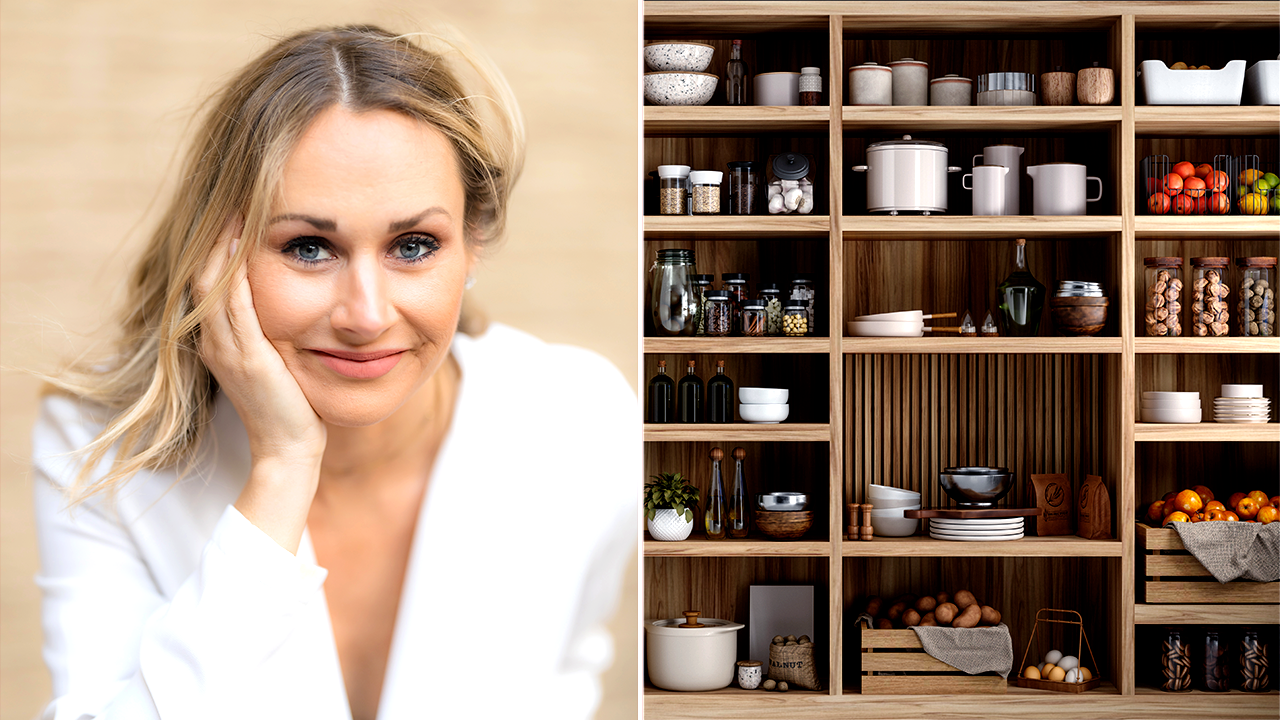Transforming My Kitchen: A Cancer Survivor’s Journey to Healthier Living
After overcoming the challenges of cancer, the journey toward wellness often extends beyond medical treatments and into the very heart of the home: the kitchen. For many survivors, transforming their kitchen into a space that promotes health and well-being becomes a crucial step in their recovery. This article explores the transformative changes I made in my own kitchen, focusing on nutrition and wellness, and aims to inspire others embarking on similar health journeys.
The Catalyst for Change
When I was diagnosed with cancer, my world turned upside down. The treatments were grueling, and the emotional toll was heavy. However, after I rang the bell to signify the end of my treatment, I realized that my battle was not just against cancer but also for a healthier lifestyle. I knew that nutrition plays a vital role in recovery and overall health. This realization served as the catalyst for transforming my kitchen.
Understanding Nutrition Post-Cancer
Nutrition is a powerful tool in the fight against cancer recurrence and in maintaining overall health post-treatment. Research has shown that a well-balanced diet can help strengthen the immune system, reduce inflammation, and improve overall well-being. Here are some key components I focused on while revamping my kitchen:
- Fruits and Vegetables: These are packed with vitamins, minerals, and antioxidants. I made it a point to incorporate a colorful variety of fruits and vegetables into my meals, aiming for at least five servings a day.
- Whole Grains: Switching to whole grains like brown rice, quinoa, and whole-grain bread helped increase my fiber intake, which is important for digestive health.
- Healthy Fats: I replaced unhealthy fats with sources of healthy fats, including avocados, nuts, seeds, and olive oil, which promote heart health.
- Lean Proteins: Incorporating lean protein sources, such as chicken, fish, legumes, and plant-based proteins, provided the essential building blocks for my body’s recovery.
Kitchen Layout and Organization
Transforming my kitchen wasn’t just about the food I prepared; it also involved rethinking the layout and organization of the space. A well-organized kitchen can reduce stress and make meal preparation more enjoyable. Here’s how I redesigned my cooking environment:
- Decluttering: I started by removing expired items and unnecessary gadgets. A clean, clutter-free space promotes a calm cooking atmosphere.
- Organizing Ingredients: I categorized my pantry items by type and created a section for healthy snacks, making it easier to make quick, nutritious choices.
- Easy Access to Tools: I ensured essential cooking tools and utensils were within easy reach, facilitating a smoother cooking process.
Embracing Meal Prep
One of the most significant changes I made was embracing meal prep. Planning meals ahead of time not only saved me time during the week but also ensured I had healthy options readily available. Here are some strategies I implemented:
- Weekly Planning: Each week, I dedicated time to plan meals, focusing on incorporating a variety of nutrients.
- Batch Cooking: I cooked large portions of grains, proteins, and vegetables, which could be mixed and matched throughout the week.
- Freezing Meals: Preparing and freezing meals for days when I didn’t feel like cooking was a lifesaver, ensuring I always had a healthy option on hand.
Incorporating Mindfulness in Cooking
Cooking can be a therapeutic activity, especially for someone recovering from cancer. I began to view my kitchen as not just a place for food preparation but as a sanctuary for mindfulness and self-care. Here’s how I incorporated mindfulness into my cooking routine:
- Savoring the Process: I took the time to enjoy each step of cooking, from chopping vegetables to stirring sauces. This helped me connect with my food and appreciate the nourishing ingredients.
- Listening to My Body: I became more attuned to my body’s needs, recognizing when I craved certain nutrients and adjusting my meals accordingly.
- Cooking with Purpose: Each meal became an opportunity to nourish my body and mind, reinforcing my commitment to health and wellness.
Involving Family and Friends
Transforming my kitchen wasn’t a journey I undertook alone. Involving family and friends made the process enjoyable and supportive. Here are some ways I included them:
- Cooking Together: Inviting loved ones to cook with me created a sense of community and made healthy cooking a social activity.
- Sharing Recipes: I exchanged healthy recipes with friends and family, fostering an environment where we could all learn and grow together.
- Encouraging Support: Having a support system helped keep me accountable for my healthy eating goals.
Staying Informed and Inspired
As I continued my health journey, I made it a priority to stay informed about nutrition and wellness. This knowledge empowered me to make better choices and keep my kitchen stocked with health-promoting ingredients. Here are some resources I found helpful:
- Books and Documentaries: I explored literature and documentaries focused on nutrition, cancer prevention, and healthy living.
- Online Communities: Engaging with online wellness communities provided support, inspiration, and new ideas for healthy meals.
- Consulting Professionals: Seeking advice from nutritionists helped tailor my dietary choices to my specific health needs.
Conclusion: A Lifelong Commitment
Transforming my kitchen has been a pivotal part of my journey as a cancer survivor. The changes I made not only support my health but also empower me to enjoy cooking and eating well. I hope that by sharing my experience, others are inspired to embark on their own journeys toward healthier living. Remember, it’s not just about the food; it’s about creating a nurturing space that encourages wellness and positivity. Each meal is a step toward a healthier future, and every effort counts in the pursuit of a vibrant life.
See more WebMD Network



